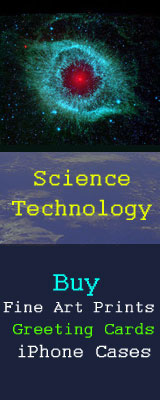.
Jürgen Moser
Jürgen Kurt Moser or Juergen Kurt Moser (July 4, 1928, Königsberg, East Prussia – December 17, 1999, Schwerzenbach, Kanton Zürich, Switzerland) was a German-American mathematician.
Professional biography
He completed his undergraduate education at and received his Ph.D. from the University of Göttingen in 1952, studying under Franz Rellich. After his thesis, he came under the influence of Carl Ludwig Siegel, with whom he coauthored the second and considerably expanded english language edition of a monography on celestial mechanics. Having spent the year 1953 at the Courant Institute of New York University as a Fulbright scholar, he emigrated to the USA in 1955. He became a professor at MIT and later at New York University. He served as director of the Courant Institute of New York University in the period of 1967–1970. In 1970 he declined the offer of a chair at the Institute for Advanced Study in Princeton. After 1980 he was at ETH Zürich, becoming professor emeritus in 1995. He was director of the Forschungsinstitut für Mathematik at ETH Zürich in 1984 - 1995, where he succeeded Beno Eckmann and lead a rebuilding of the ETH Zürich mathematics faculty. Moser was president of the International Mathematical Union in 1983 - 1986.
Students
Among his students were Mark Adler of Brandeis University, Ed Belbruno, Charles Conley (1933–1984), Howard Jacobowitz of Rutgers University, and Paul Rabinowitz.
Awards and Honours
He won the first George David Birkhoff Prize in 1968 for contributions to the theory of Hamiltonian dynamical systems, the James Craig Watson Medal in 1969 for his contributions to dynamical astronomy, the L. E. J. Brouwer Medal of the Royal Dutch Mathematical Society in 1984, the Cantor Medal of the Deutsche Mathematiker-Vereinigung in 1992 and the Wolf Prize in 1995 for his work on stability in Hamiltonian systems and on nonlinear differential equations. He was elected to membership of the National Academy of Sciences in 1973 and was corresponding member of numerous foreign academies such as the London Mathematical Society and the Akademie der Wissenschaften und Literatur, Mainz . At three occasions he was an invited speaker at the quadrennial International Congress of Mathematicians , namely in Stockholm (1962) in the section on Applied Mathematics, in Helsinki (1978) in the section on Complex Analysis, and a plenary speaker in Berlin (1998). In 1990 he was awarded an honorary doctorate from the University of Bochum. The Society for Industrial and Applied Mathematics established a lecture prize in his honor in 2000.
Personal biography
His mother was Ilse Strehlke was a niece of the violinist and composer Louis Spohr. His father was the neurologist Kurt E. Moser, who descended from 17th century French Hugenot immigrants to Prussia. They lived in Königsberg, German empire and resettled in Stralsund, East Germany as a result of the second world war. Moser attended the Wilhelms-Gymnasium in his hometown, a high school which from which David Hilbert had graduated. His older brother Friedrich (Friedel) Moser (August 31, 1925 - February 6, 1945) served in the German army and died in in Dodrowolsk, Russia. In 1960 he took up residence in New Rochelle, New York, commuting to work in New York City. He was survived by his adoptive brother, the photographer Klaus T. Moser-Maync from New York, his wife, the biologist Gertrude C. Moser (Richard Courant's daughter, Carl Runge's granddaughter and great-granddaughter of Emil DuBois-Reymond) from Seattle, his stepson, the lawyer Richard D. Emery from New York City, and their daughters, the theater lighting designer Nina S. Moser from Seattle and the mathematician Lucy I. Moser-Jauslin from Dijon. Moser played the piano and the cello, performing chamber music since his childhood in the tradition of a musical family, where his father played the violin and his mother the piano. He was an amateur astronomer and took up paragliding in 1988 during a visit at IMPA in Rio de Janeiro.
See also
* Kolmogorov–Arnold–Moser theorem
* Nash–Moser theorem
References
* Mather, John N.; McKean, Henry P.; Nirenberg, Louis; Rabinowitz, Paul H. (December 2000). "Jürgen K. Moser" (.PDF). Notices of the AMS 4 (11): 1392–1405. http://www.ams.org/notices/200011/mem-moser.pdf. Retrieved 2007-08-20.
* Robert Schrader (20 March 2000). "Jürgen Moser: Obituary". News Bulletin. International Association of Mathematical Physics. http://www.math.tu-berlin.de/iamp/old_bulletins/1998ff/Obituaries.html. Retrieved 2007-08-20.
* "Jürgen Kurt Moser". http://www-history.mcs.st-and.ac.uk/Biographies/Moser_Jurgen.html. Retrieved 2008-07-04.
Retrieved from "http://en.wikipedia.org/"
All text is available under the terms of the GNU Free Documentation License


